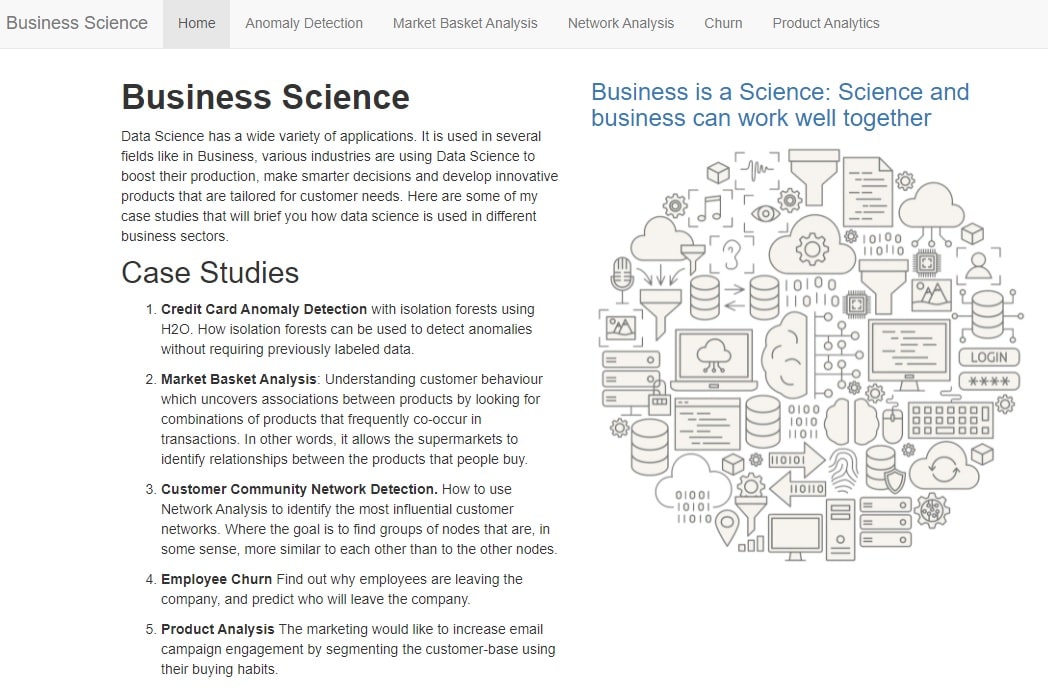

Business Science Use Cases
Highlight of some key data science use cases in marketing
Skills and deliverables
Segmentation, Marketing, Attrition/Churn, Anomaly Detection, Social Network
Challenge
In the ever-evolving digital landscape, companies face numerous challenges, such as understanding customer behavior, optimizing marketing efforts, and delivering personalized experiences.
Solution
Data science empowers marketers to make informed decisions by extracting valuable information from vast datasets, identifying patterns, and predicting customer behavior.
Objectives
By harnessing data science use cases, digital marketers gain a competitive advantage, driving higher customer satisfaction, increased conversion rates, and long-term brand loyalty. Ultimately, data science empowers marketers to navigate the complexities of the digital marketing landscape and stay ahead of the competition in this data-driven era.
Several data science use cases that can help overcome digital marketing challenges and improve marketing strategies:
Market Basket Analysis
The unsupervised learning data mining techniques aimed at understanding buying patterns and revealing co-occurrence relationships between purchases. These techniques enable the prediction of future purchase decisions.
Furthermore, market basket analysis can greatly enhance the effectiveness of marketing messages. Regardless of the type of marketing message, such as direct offers, emails, social media posts, phone calls, or newsletters, it becomes possible to suggest the next best product that aligns with each specific customer’s preferences.
Customer Segmentation
Every customer is unique, and using a one-size-fits-all approach is ineffective. To address this, marketers rely on customer segmentation. By applying statistical analysis, marketers can divide the data and group customers based on specific criteria that coincide with their characteristics.
Customer segmentation involves the process of categorizing customers into segments according to the similarities in their characteristics, providing a more personalized and targeted approach to marketing.
- Predictive analytics for customers’ behavior Cluster models, predictions, collaborative filtering, and regression analysis are utilized to identify correlation patterns in customers’ behavior, enabling the prediction of future purchasing trends.

